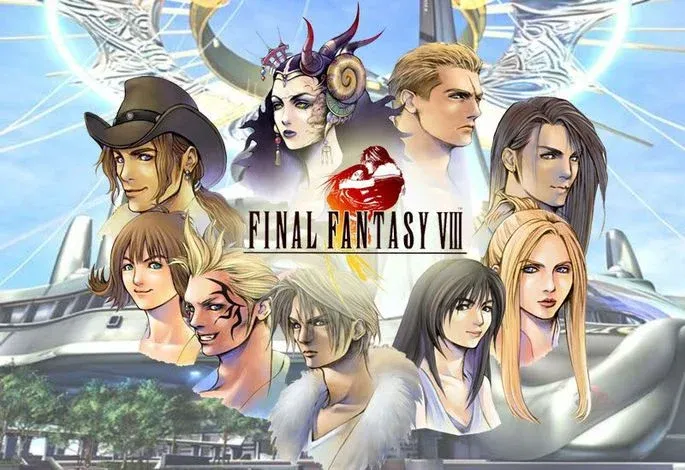
Final Fantasy VIII was the game that got away from me, more than once. I did own a copy on the PlayStation - and I never went past the first disc. Upon my completion of Final Fantasy VII (which was all the way back in August, I immediately started on Final Fantasy VIII, again playing it on the Nintendo Switch.
This makes this post a part of my A-Z of Steam series, where I am playing my games in alphabetical order.
It is now October, and I've finally seen the credits roll on Final Fantasy VIII, with about 45 hours clocked up in game.
So, what's the verdict? How does it hold up in 2021?
Story
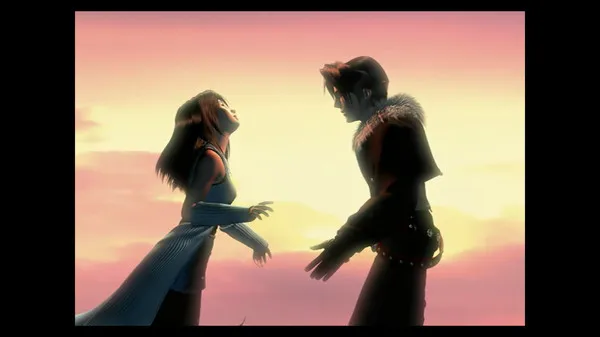
Final Fantasy VIII follows the protagonist, Squall. He's a disinterested, mostly un-emotional student at the Balamb Garden Academy. This academy trains mercenaries who complete missions for who-ever has a mission... that needs a mercenary. He is accompanied by a group of fellow students as colleagues / friends, and only some them graduate into "SEEDs", which are the esteemed merc force that can globe-trot and do what mercs do.
This leads you on a mission that starts of as political intruige, but circles back to a common thread that each of the game's party members share. From there, the plot deepens, and the pacing intensifies, with obstacles becoming more challenging.
There's enough here to keep you interested, but the lulls in the early game make it really easy to lose interest in the title early. If you put the time in, you're rewarded in the mid to late game by some truly unique story telling elements that stand up well.
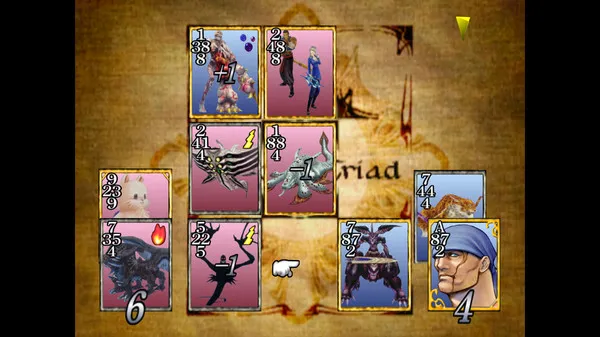
There's lots of loose ends that don't get tied up in the story - and while this is somewhat disappointing (as some of these side-stories are pretty interesting) - there's satisfying closure on most of the main plot points.
Visuals
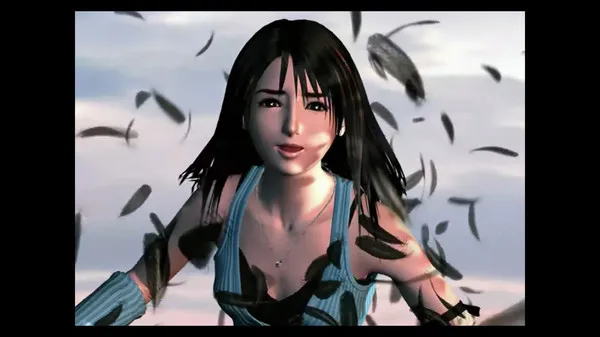
The game has not aged gracefully. Even in 2021, with the wonders of machine learning, mods (if you're playing on the PC) - or emulation with higher target resolutions, a lot of the Final Fantasy VIII source code was lost to the sands of time in what would have been a chaotic Square Enix development office.
While FMVs hold up - and achieve the quality of what real time graphics would eventually accomplish on the PlayStation 2 - the many overlays and interface elements are just downright garish and difficult to comprehend in parts of the game. Thankfully, these are rare, and not game breaking - but there's definitely a stylistic direction taken in the game that steered away from the charm of prior Final Fantasy titles.
Thankfully, menus are laid out in a logical order. There's a ton of metagame within the interface especially where it comes to customising characters in the combat system which I'll discuss next.
Combat Mechanics
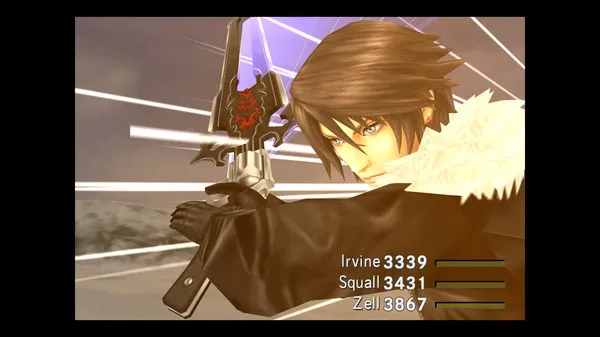
Deep doesn't describe the mechanics of Final Fantasy VIII. Each character, with the exception of their limit break, is a blank slate. You are able to enhance and round out your characters using a variety of features, of which Guardian Forces are the main stable. These are the summon materia of Final Fantasy VII, and the Eidlons of prior titles.
Each character in your party can have several Guardian Forces junctioned to them, and with this, you can bestow a variety of skills. The most important of these is Draw, which allows you to extract magical essences and spells from enemy monsters you encounter throughout the world.
These spells, in conjunction with Guardian Force abilities, can then be set to work in tandem with your attacks, defence, or any stat (Str, Vitality, Spirit, Speed, Hit%, etc) and apply effects in combat. If you junction fire magic to your attack, then you'll do a little fire damage. If you junction fire magic to your defence, you will eventually absorb fire attacks, and they'll heal you.
As a result, the combinations of character builds are somewhat endlessly customisable. The only weakness here is the strength of the interface design - we have to remember that this game was released in the generation of the CRT, and this depth of choice is not easy to appreciate in low resolution menus and dozens of screens that you need to scroll through.
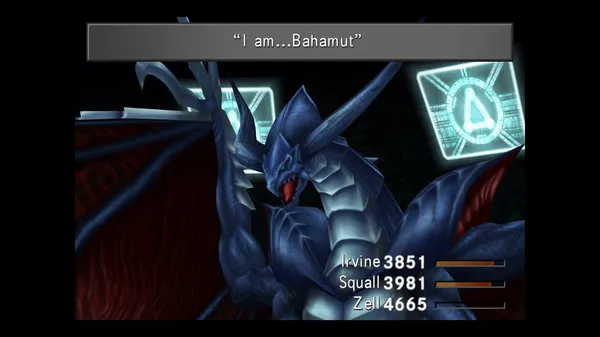
A complicated system, without which, the difficult of Final Fantasy VIII would be close to unforgiving. However, once you master the basics of the Junction system, your characters morph from relying on summoning Guardian Forces to get by to absolute powerhouses, poised to counter the threat they're encountering in an area with a few clever combinations of spells.
The only disappointing part of this customisation system is that it discourages the active use of magic, as it has far more utility being stocked, and used to enhance attacks, rather than deliver them.
Sound
The music present in Final Fantasy VIII is a departure from prior titles. There's more confident anthems in the game than mellow, meditative tunes, but - it fits the world so well. This is the first Final Fantasy game where you can tell that the developers really wanted to use Voice Acting - but ... owing to budgets, disc space, and other constraints - they simply couldn't at the time.
It feels like the game would be very much better with voice acting including throughout. However, given its age and the size (originally released on 4 CD-ROMs - the game's production costs and size would've been far too large for the era of its release had it included Voice acting.
Overall...
Final Fantasy VIII feels like a better version of FF5. The depth of the combat system is under appreciated, and the Triple Triad card game gives the astute player some impressive bonuses in combat if you elect to use the cards to convert them into game-changing items... it's also... well... fun - which is kind of the point of games.
It is easy (and quite a realistic problem) to get distracted from the beaten path of the game, exploring aimlessly as you roam the world. There's lots to see, fight and touch.
The remaster has several quality of life improvements - the ability to play through at 3X speed, battle boosts, and the option to avoid enemy encounters. In addition, on some platforms it also comes with achievements - visual tweaks, and the ability to suspend the game in a way that the PlayStation never could (this is one of the best reasons to play the game on the Switch, IMO!)
There's some fantastic characters in this title, and some awesome artwork throughout. Edea is one of my favourite character designs from any Final Fantasy game - right up with Rydia from FF4.
It is a game that endures, but doesn't have the lasting appeal and longevity of something like FF6 / FF7. It is definitely up there, but to renew my Final Fantasy tier list... it goes a little something like this:
- Final Fantasy 6
- Final Fantasy 4
- Final Fantasy 7
- Final Fantasy 3
- Final Fantasy 8
- Final Fantasy 5
- Final Fantasy 2
- Final Fantasy
Next up on the list is Final Fantasy IX, a title I've also never finished. I'm looking forward to this one. Hopefully it won't take me 2 months to finish!
If you've taken the time to read all the way through this post - thank you! I appreciate your endurance!